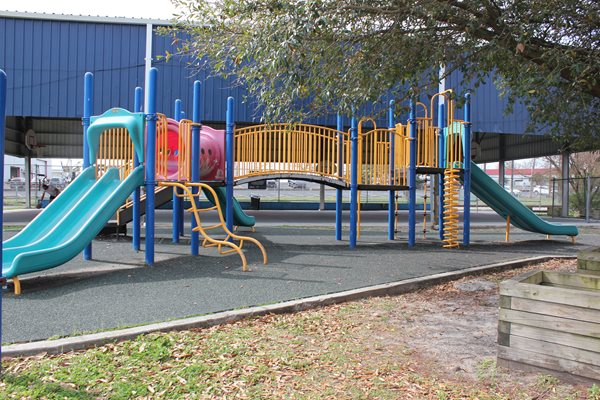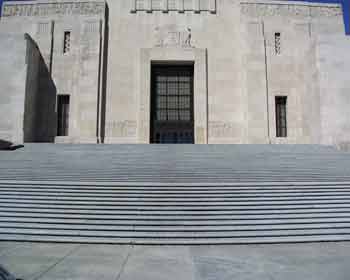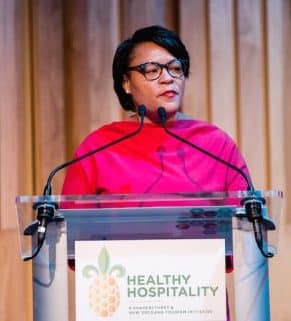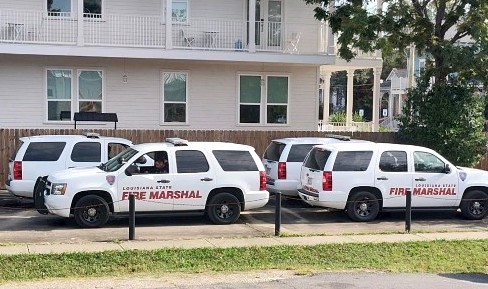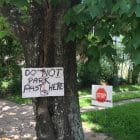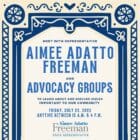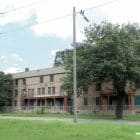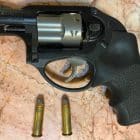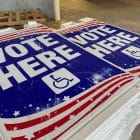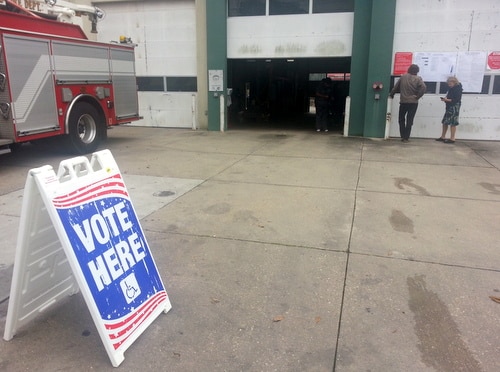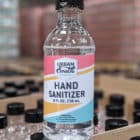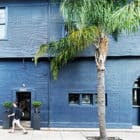A groundbreaking ceremony Tuesday (Oct. 3) marked the beginning of the George Washington Carver Playground Improvement Project in the Black Pearl neighborhood. The scope of work includes upgrades and renovations to the playground’s existing concessions building and restrooms to bring them up to city, Department of Health and Hospitals and Americans with Disabilities Act standards. Mayor LaToya Cantrell, the city’s Capital Projects Director Vincent Smith, CEO of New Orleans Recreation Development Commission CEO Larry Barabino Jr., District 98 state Rep. Aimee Freeman, former state Rep. Neil Abramson and community member Burnell Scales attended the ceremony. “The group assembled here have been boots on the ground to ensure this project happens,” said Mayor LaToya Cantrell.
doubles to dorms
State fire marshal warns doubles-to-dorms owners about safety violations, NOLA.com reports
|
The owners of more than 100 student-housing conversions in the University area were issued a warning letter over the weekend from the Louisiana fire marshal that their building may be unlawfully occupied and require a safety inspection, Stephanie Riegel reports on NOLA.com. Buildings that house four or more unrelated residents are considered commercial properties and must have fire exits, sprinkler systems and meet the requirements of the Americans with Disabilities Act. The fire marshal’s office, which got involved at state Rep. Aimee Freeman’s urging, told Riegel it is not likely to shut down the doubles-to-dorms, but neighbors said they welcome the extra burden on the D2D developers.
Advertiser specials
A message from Rep. Aimee Adatto Freeman: Join us Friday, July 22 (sponsored)
|
Dear Friends and Constituents,
Thank you for your support, partnership and encouragement. This is an especially consequential time in our nation and our state. The pandemic, inflation, mass shootings, anti-abortion laws — the list of challenges goes on and on. And many solutions lie in the state Legislature, where policies that most impact people’s lives pass – or fail. I’m incredibly proud of what we’ve achieved together since I was elected as the Representative for District 98, especially the wins everyone else said were impossible.
Join us in exploring benevolent societies and social aid clubs, hosted by Chelsey Richard Napoleon, Clerk of Civil District Court (sponsored)
|
In continuation of our virtual exhibits, we invite you to join us in exploring benevolent societies and social aid clubs in New Orleans. Our blog will feature a sampling of charters and notarial acts related to local benevolent societies and social aid clubs in our collection. Visit our website at www.orleanscivilclerk.com to view the blog. Visit us at the Research Center, where exhibits can be viewed in person from 9 a.m. to 4 p.m., Monday through Friday. For more information, please contact the Research Center at 504-407-0106 or civilclerkresearchctr@orleanscdc.com.
land use & development
Group working to add B.W. Cooper buildings to Broad Street Cultural District
|
Broad Community Connections is proposing to include the B.W. Cooper public housing site in the South Broad Street Cultural District.
Three original buildings are left of the original Calliope Projects, renamed for B.W. Cooper in 1981. After Hurricane Katrina, the development was shuttered. Most of it was demolished and replaced with Marrero Commons, a mixed-income townhouse-style development. Broad Community Connections, a nonprofit that works with small businesses to redevelop the Broad Street corridor, said about two-thirds of the Marrero Commons complex sits within the proposed expansion area. The proposal would expand the South Broad Street Cultural District to include the land bordered by Earhart Boulevard, South Dorgenois Street, Martin Luther King Jr. Boulevard and South Galvez Street.
The Cultural Districts Program was created by the Louisiana legislature in 2007 to revitalize and preserve cultural hubs within the state.
environment
Irish Channel residents work to combat noxious fumes, NOLA.com reports
|
Irish Channel residents joined forces with residents of Jefferson Parish’s west bank to rid themselves of a noxious smell that has been wafting through their neighborhoods and into their homes for the past two years, Halle Parker reports on NOLA.com, prompting 850 complaints with the Louisiana Department of Environmental Quality. The DEQ identified a west bank bulk liquid storage complex known as BWC Harvey as a possible culprit and has installed an air monitor on Tchoupitoulas Street. The citizens group, backed by the New Orleans City Council, is asking the U.S. Environmental Protection Agency and Gov. John Bel Edwards to suspend BWC Harvey’s pollution permit for review.
opinion
Viewpoint: Second Amendment supporters pleased with 2021 legislative session
|
It was a productive legislative session for advocates of the Second Amendment, according to attorney Dan Zelenka, president of the Louisiana Shooting Association. “Overall, the 2021 session was quite good,” Zelenka said. “Four of the five bills our statewide organization supported — HB 48, HB 124, HB 597 and SB 118 — are now sitting on Gov. John Bel Edwards’ desk awaiting his signature.”
Although three of the four pieces of legislation sailed through both chambers without significant opposition, Gov. Edwards could decide to veto SB 118, known as the concealed-carry bill. Introduced by state Sen. Jay Morris, R-West Monroe, and passed by a veto-proof majority, the law would allow Louisiana residents who are otherwise qualified to carry a concealed firearm to now do so without first obtaining a concealed weapons permit. Louisiana has always been a state with powerful pro-gun legislative leaders and zealous gun enthusiasts.
opinion
Viewpoint: Candidates lining up to fill Troy Carter’s state Senate seat
|
With victory firmly in hand, U.S. Rep.-elect Troy Carter is wrapping up his work in Baton Rouge in preparation for his move to Washington, D.C. After his resignation today (April 29) from the Louisiana Senate, Senate President Page Cortez called the election for June 12 with a runoff if necessary on July 10. Qualifying will take place next week: May 5, 6 and 7. Five diverse candidates are already considering the race for this West Bank seat: former state Sen. David Heitmeier, state Rep. Mack Cormier, state Rep. Rodney Lyons, Belle Chasse political insider Joanna Leopold, and Carter’s nephew, state Rep. Gary M. Carter Jr.
Long-time Democrats, the Heitmeiers have been political players on the West Bank for decades. Before David Heitmeier ran for office in 2007, his brother Francis C. Heitmeier served in the Legislature for 16 years. An Algiers-based optometrist, Heitmeier chaired the Senate’s Health and Welfare Committee and was a member of the Environmental Quality, the Revenue and Fiscal Affairs, and the Transportation, Highways and Public Works committees.
He chose not to seek re-election for personal reasons in 2015, a decision that paved the way for then-Rep. Troy Carter to move to the upper chamber in 2016.
opinion
Viewpoint: Mail-in ballots are essential for the safety of Louisiana voters
|
Who wants to potentially put themselves or their family members at risk by voting at a poll on upcoming election days? With Louisiana’s presidential primary and other ballot measures now scheduled for July 11, state officials are squabbling over how to hold safe elections during the pandemic and beyond. Newly minted state Rep. Mandie Landry, District 91, pre-filed House Bill 419, to allow all registered voters to utilize voting by mail in every election. Co-authored by Reps. Aimee Freeman, District 98, and Matt Willard, District 97, this legislation would impact the November elections and beyond.
business
Put down that beer: Urban South Brewery gets state contract for hand sanitizer
|
Urban South Brewery, the largest craft brewery in New Orleans, recently won a bid to produce 50,000 eight-ounce bottles of hand sanitizer for Louisiana’s Office of Homeland Security and Emergency Preparedness. The Tchoupitoulas Street brewery has partnered with other Louisiana manufacturers to secure the raw materials necessary to take on this project. Orders for hand sanitizer have exceeded 120,000 bottles from local hospitals, grocery stores, nursing homes and small businesses. “In such unfamiliar and challenging times, it’s important for us to support other businesses impacted by this crisis and support our community in a time of need,” said Jacob Landry, founder of Urban South Brewery, in a press release. “This is a unique opportunity to keep our team employed and working while meeting a critical need in the community that has supported us for the last four years.”
Urban South employees will use their beer production and packaging skills to instead bottle hand sanitizer amid the nationwide shortage.
business
Why restaurants and drive-thru daiquiri shops can sell alcohol to-go as bars remain shuttered
|
While some bars in New Orleans hoped they could survive the economic fallout of COVID-19 by selling alcohol to-go, city and state officials have clarified that they must close completely – leading to a peculiar situation where restaurants, breweries and even drive-thru daiquiri shops can sell alcohol to-go, but not regular bars. To stem the spread of coronavirus, on March 16 Gov. John Bel Edwards ordered all bars in the state closed until at least April 13. However, drive-thru daiquiri stores can still remain open and restaurants can still sell packaged beer or wine for curbside pick-up or delivery. Breweries can still sell their beer, though not from the tap. Some bars with kitchens initially thought that they could still employ some staff by selling alcohol and food to-go as well, but officials ordered them to stop.
